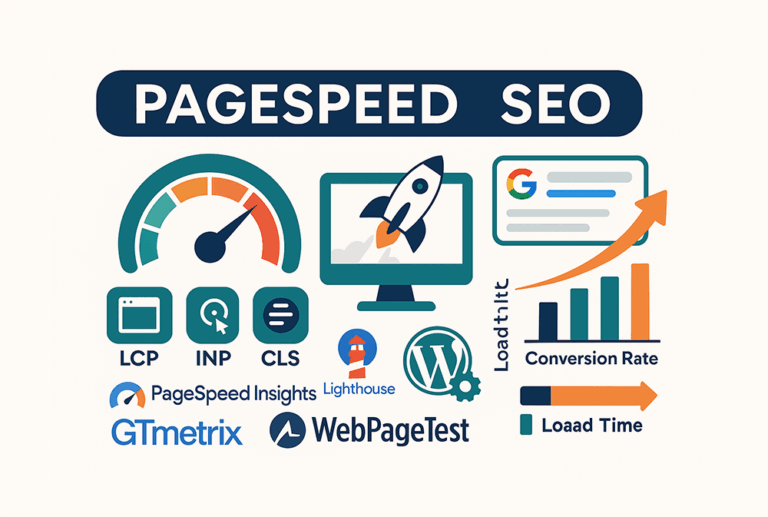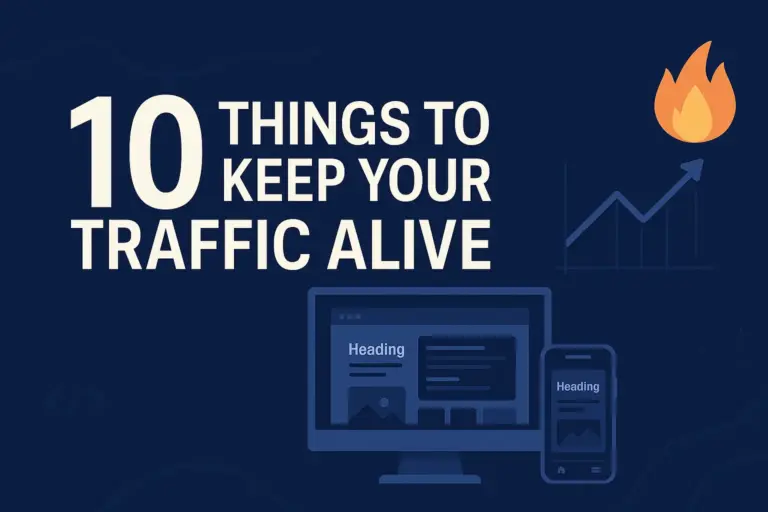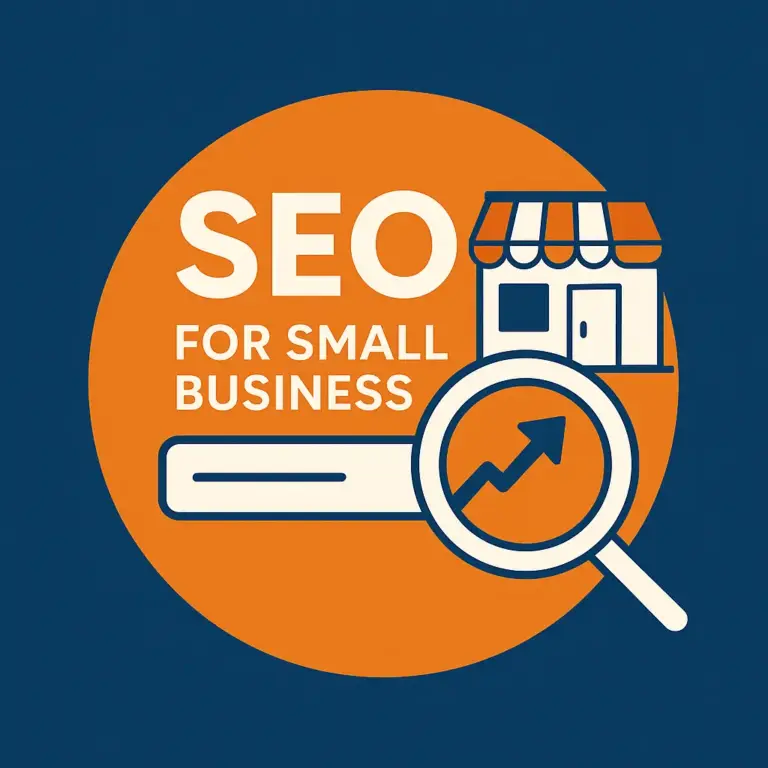10 Best SEO Strategies to Make Google Love Your Website in 2025
Search Engine Optimisation (SEO) is constantly evolving, and staying ahead of the curve is essential if you want your website to rank well on Google. In 2025, the rules of SEO continue to change, with AI playing a bigger role than ever before. This guide will break down the 10 best SEO strategies you need to follow to keep your website in Google’s good books. And trust me, Google has a long memory.
1. Content is Still King for SEO Strategies (But AI is the Queen)
Quality content remains the cornerstone of SEO, but in 2025, AI-generated content has changed the game. Google’s algorithms can now detect poorly written, spammy AI content, so you need to ensure your AI-assisted articles are well-edited, unique, and engaging.
How to Do It Right:
- Use AI tools like ChatGPT, Jasper, or Writesonic to assist, but always add a human touch.
- Write long-form, valuable content that genuinely answers user queries.
- Focus on E-E-A-T (Experience, Expertise, Authoritativeness, and Trustworthiness).
🔗 Useful Tools:
SurferSEO – Helps optimise content for search intent.
Grammarly – Ensures your AI-written content is polished.

2. Optimise for Search Intent, Not Just Keywords
Keyword stuffing is so 2015. Now, Google prioritises pages that match user intent rather than those crammed with keywords.
How to Align with Search Intent:
- Identify whether a keyword is informational, navigational, transactional, or commercial.
- Structure content accordingly: if users want answers, provide them before making a sales pitch.
- Use tools like Google’s People Also Ask, SEMrush, or Ahrefs to analyse intent.
🔗 Useful Tools:
Ahrefs Keyword Explorer – Find search intent for keywords.
AnswerThePublic – Discover common user queries.
3. Mobile-First Indexing: Your Website Must Be Fast and Responsive
Google now primarily indexes the mobile version of your website. If your site isn’t optimised for mobile, you’re in trouble.
How to Optimise for Mobile:
- Use responsive design (your site should work seamlessly on all devices).
- Improve site speed with lazy loading and image compression.
- Test using Google’s Mobile-Friendly Test: test here.
🔗 Useful Tools:
PageSpeed Insights – Analyse your site’s speed.
GTmetrix – Another great tool to measure speed performance.
4. AI-Driven SEO: Use Machine Learning to Improve Rankings
SEO tools powered by AI are revolutionising how we optimise content and backlinks.
How AI Helps with SEO:
- AI-powered chatbots improve user engagement (Google tracks this!).
- Tools like SurferSEO and Frase.io suggest content improvements based on SERP analysis.
- AI can automate internal linking to strengthen site structure.
🔗 Useful Tools:
Frase.io – AI-driven content optimisation.
SurferSEO – Helps with keyword and content planning.
5. Core Web Vitals: Google’s Favourite Performance Metrics
Google introduced Core Web Vitals as a ranking factor. If your website loads like it’s stuck in 1998, you’re losing rankings.
How to Improve Core Web Vitals:
- Reduce Largest Contentful Paint (LCP) by optimising images.
- Improve First Input Delay (FID) by minimising JavaScript bloat.
- Fix Cumulative Layout Shift (CLS) by stabilising design elements.
🔗 Useful Tools:
Google Search Console – Track Core Web Vitals issues.
Web.dev – Provides actionable improvement tips.
6. Backlinks: Quality Over Quantity
Does the SEO strategy of purchasing external links still work? Gone are the days when buying 10,000 backlinks from shady sources worked. Google now values high-quality, relevant backlinks.
How to Get Good Backlinks:
- Create link-worthy content (e.g., original research, statistics, infographics).
- Reach out for guest posts and collaborations.
- Monitor competitors’ backlinks using Ahrefs or SEMrush.
🔗 Useful Tools:
Ahrefs Backlink Checker
Majestic SEO
7. Local SEO: Dominate Your Area
The best SEO strategy for a small business is to focus on the region of service.If you run a business, you must focus on local SEO.
How to Win at Local SEO:
- Optimise your Google Business Profile.
- Get customer reviews (Google loves them!).
- Use location-specific keywords.
🔗 Useful Tools:
Google My Business
BrightLocal
8. Schema Markup: Help Google Understand Your Site
Schema markup is structured data that helps search engines understand your content better.
How to Use Schema:
- Implement FAQ Schema to appear in “People Also Ask”.
- Use Product Schema for e-commerce sites.
- Add Review Schema to boost credibility.
🔗 Useful Tools:
Schema Markup Generator
9. Video SEO: Rank on YouTube and Google
A SEO strategy to optimise and incorporate video into your website still works well. Google prioritises video content, so integrating YouTube SEO can boost rankings.
How to Optimise for Video SEO:
- Add transcripts and captions.
- Use YouTube tags and optimised descriptions.
- Embed videos on your website.
🔗 Useful Tools:
TubeBuddy
10. User Experience (UX): Keep Visitors Engaged
Google tracks user behaviour, so if visitors leave quickly, your rankings suffer.
How to Improve UX:
- Improve website navigation.
- Write engaging, easy-to-read content.
- Use clear calls-to-action (CTAs).
- Make you website incredibly fast.
🔗 Useful Tools:
Crazy Egg – Analyses user behaviour.
Conclusion: Want the Best SEO Results? Work with Experts
SEO in 2025 is complex, and Google keeps making it harder to rank. If you want to dominate search results without the stress, let the professionals handle it. LeonovDesign specialises in building high-performing websites that Google and your users will love.
📞 Contact us today and let’s grow your website together!






